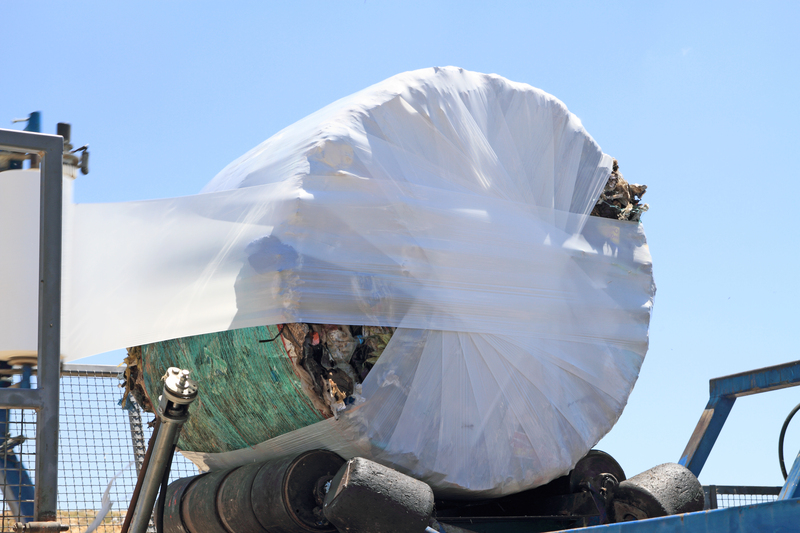Understanding Garbage Management in London
 London faces significant challenges when it comes to managing its garbage. As one of the largest cities in the world, the volume of waste produced daily is staggering. Effective waste management is crucial not only for maintaining the city's cleanliness but also for ensuring the health and well-being of its residents.
London faces significant challenges when it comes to managing its garbage. As one of the largest cities in the world, the volume of waste produced daily is staggering. Effective waste management is crucial not only for maintaining the city's cleanliness but also for ensuring the health and well-being of its residents.
Over the years, London has implemented various strategies to handle its garbage. From recycling programs to waste-to-energy initiatives, the city is constantly evolving its approach to tackle the growing waste problem. Innovative solutions are essential to keep up with the increasing demands of a bustling metropolis.
One of the primary components of London's waste management system is recycling. By encouraging residents and businesses to separate recyclable materials from general waste, the city aims to reduce the amount of garbage sent to landfills. This not only conserves resources but also minimizes the environmental impact of waste disposal.
 The efficiency of garbage collection in London plays a pivotal role in maintaining urban hygiene. Multiple collection points are strategically placed throughout the city to ensure that waste is collected promptly and efficiently. This system helps in preventing the accumulation of trash in public spaces, thereby enhancing the overall quality of life.
The efficiency of garbage collection in London plays a pivotal role in maintaining urban hygiene. Multiple collection points are strategically placed throughout the city to ensure that waste is collected promptly and efficiently. This system helps in preventing the accumulation of trash in public spaces, thereby enhancing the overall quality of life.
In addition to traditional garbage collection methods, London has embraced technological advancements to streamline its waste management processes. Smart bins that monitor waste levels and optimize collection routes are becoming increasingly common. These technologies not only improve operational efficiency but also contribute to cost savings for the city.
Public awareness campaigns are another critical aspect of London's garbage management strategy. Educating citizens about the importance of proper waste disposal and recycling fosters a culture of responsibility and sustainability. Initiatives such as "Recycle London" aim to inspire individuals to take proactive steps in reducing their ecological footprint.
 Despite the progress made, London still grapples with several challenges related to garbage management. The sheer volume of waste generated by the city's population poses a constant hurdle. Additionally, the contamination of recyclable materials can undermine the effectiveness of recycling programs, leading to increased costs and reduced efficiency.
Despite the progress made, London still grapples with several challenges related to garbage management. The sheer volume of waste generated by the city's population poses a constant hurdle. Additionally, the contamination of recyclable materials can undermine the effectiveness of recycling programs, leading to increased costs and reduced efficiency.
To address these issues, London is exploring alternative waste management solutions. One such approach is the conversion of garbage into energy through incineration. Waste-to-energy plants not only reduce the volume of waste but also provide a renewable source of energy, contributing to the city's sustainability goals.
The role of government policies cannot be understated in the context of garbage management. Regulations that mandate recycling, restrict single-use plastics, and incentivize sustainable practices are instrumental in driving change. These policies create a framework within which both individuals and businesses can operate more responsibly.
 Looking forward, London aims to further enhance its garbage management systems by integrating more advanced technologies and adopting best practices from around the world. Collaborations with environmental experts and stakeholders are essential in developing comprehensive strategies that address both current and future challenges.
Looking forward, London aims to further enhance its garbage management systems by integrating more advanced technologies and adopting best practices from around the world. Collaborations with environmental experts and stakeholders are essential in developing comprehensive strategies that address both current and future challenges.
Community involvement is also a key factor in the success of waste management initiatives. Local groups and organizations play a vital role in promoting recycling, organizing clean-up drives, and advocating for sustainable practices. Their efforts complement the city's broader objectives and help in fostering a sense of collective responsibility.
 In conclusion, garbage management in London is a multifaceted endeavor that requires continuous effort and innovation. By leveraging technology, enforcing effective policies, and engaging the community, London strives to create a cleaner, healthier, and more sustainable urban environment. The challenges are significant, but with dedicated initiatives and collaborative efforts, the city is well-equipped to handle its waste management needs.
In conclusion, garbage management in London is a multifaceted endeavor that requires continuous effort and innovation. By leveraging technology, enforcing effective policies, and engaging the community, London strives to create a cleaner, healthier, and more sustainable urban environment. The challenges are significant, but with dedicated initiatives and collaborative efforts, the city is well-equipped to handle its waste management needs.







